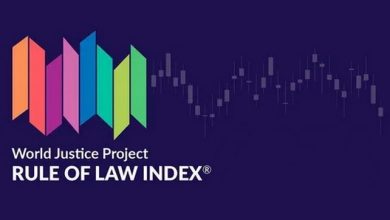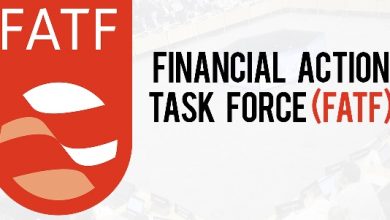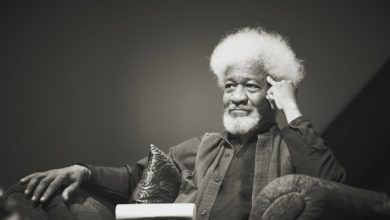The Year of Defamation: Why Ghana’s Public Figures Are Turning to the Courts in Record Numbers
By Legal Africa News Desk

If 2025 had a legal theme in Ghana, it would be “Defamation.” In just the first half of the year, Ghana’s courts have been flooded with high-profile lawsuits involving media personalities, politicians, celebrities, religious figures, and influencers, all fighting to protect one thing: their name.
From million-cedi rulings to sensational courtroom showdowns, this surge in defamation cases signals not only a new appetite for legal redress but also a cultural shift around digital speech, accountability, and reputational risk in Ghana’s public sphere.
The Notable Cases of 2025
1. Anas Aremeyaw Anas vs. Kennedy Agyapong (U.S. Case)
Investigative journalist Anas made headlines globally after winning an $18 million defamation verdict against former MP Kennedy Agyapong in a New Jersey court. Agyapong had accused Anas of murder and corruption in a podcast episode. Though a judge later reduced the award to just $500 due to jurisdictional limits, the symbolic win was enormous.
2. Ace Ankomah vs. Kevin Taylor
Respected legal practitioner Ace Ankomah successfully sued U.S.-based social commentator Kevin Taylor for GH¢2.95 million over a string of defamatory online videos. The court ordered a retraction and apology and Ankomah is currently moving to enforce the judgment after years of online abuse.
3. Rev. John Ntim Fordjour vs. WhatsApp Admins
In a landmark ruling by the Cape Coast High Court, Rev. Ntim Fordjour was awarded GH¢700,000 against individuals managing the WhatsApp group Assinman Politics Ghana, where he was defamed. This case highlighted how even informal digital platforms like WhatsApp are no longer outside the law’s reach.
4. Empress Gifty vs. Nana Agradaa
Gospel singer Empress Gifty sued controversial televangelist Nana Agradaa for GH¢20 million over claims of infidelity and public humiliation. Though still ongoing, the case has captivated national attention and redefined the boundaries of religious discourse in media.
5. Yvonne Nelson vs. Mona Gucci
Actress and activist Yvonne Nelson secured GH¢340,000 in damages after being defamed by media personality Mona Gucci. This win marks another major victory for celebrities standing up against character assassination in the public eye.
6. Kojo Forex vs. Bongo Ideas
Forex trader Kojo Forex was awarded GH¢170,000 after social commentator Bongo Ideas (Albert Hyde) made derogatory posts about him on Twitter. The ruling mandated a retraction, public apology, and permanent injunction a stark warning to digital influencers who blur the lines between critique and defamation.
Why Is Defamation So Prevalent in 2025?
Several factors are contributing to the explosion of defamation cases in Ghana this year:
-
Digital Platforms as Battlefields: From Twitter to TikTok to WhatsApp, public conversation has shifted online, making personal attacks and false narratives go viral within minutes. With reputations now under constant threat, public figures are taking legal cover.
-
Growing Awareness of Legal Rights: Public figures, especially in law, politics, and entertainment, are increasingly aware of their legal options and are more willing to fight back especially against online slander.
-
Changing Judicial Temperament: Ghana’s courts are now more proactive in awarding significant damages and granting injunctions in reputation-related cases, which in the past were hard to win.
-
The Influence of Precedent: Landmark rulings like Ace Ankomah’s and Anas’s cases are encouraging more individuals to file. It is no longer seen as merely “dragging someone to court” but as an assertion of dignity.
Is This Trend Unique to Ghana?
Not at all.
Across Africa, we are witnessing similar developments:
-
In Nigeria, public figures like Davido, Toke Makinwa, and several politicians have been involved in defamation lawsuits, especially over viral blog and social media posts.
-
In Kenya, the defamation case involving activist Boniface Mwangi and former Nairobi Governor Mike Sonko is still ongoing, revealing how courts are navigating freedom of expression and harm.
-
South Africa has long had a strong legal culture around libel and slander, with politicians often suing media outlets.
What makes Ghana’s situation remarkable in 2025 is the volume and profile of the litigantsshowing a national reckoning with public speech, especially in digital spaces.
The Bigger Picture: Free Speech vs. Accountability
Some critics argue these lawsuits may have a chilling effect on free speech, especially for journalists and citizen commentators. But defenders of these rulings say it is long overdue if you want to comment publicly, do it responsibly.
As one legal analyst said recently, “Speech is free, but lies can be costly.”
Call to Action for the Media
-
Media houses and content creators must fact-check and verify before publication.
-
Social media influencers and citizen journalists must learn the limits of opinion and the liabilities of slander.
-
Legal educators and civil society must help citizens understand the balance between expression and defamation.
Conclusion
2025 may be remembered as the year Ghana took reputation seriously and the courts listened. Whether this trend will refine speech or stifle it remains to be seen. But for now, one thing is clear: your words can and will be used against you in a court of law.




